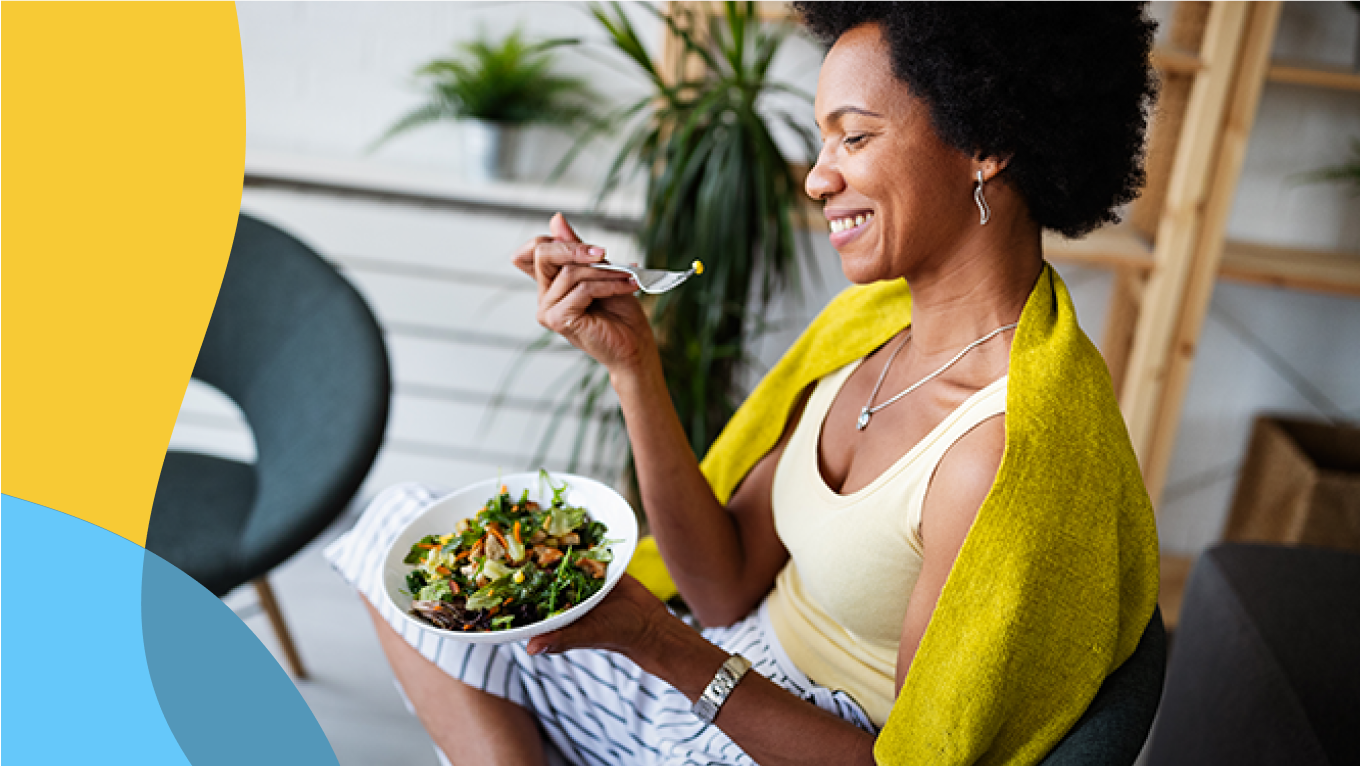
Managing constipation throughout cancer care
One of the more common and unpleasant side effects you may experience from your cancer treatment is constipation. It is defined as having three or fewer bowel movements per week, often involving stool that is hard and difficult to pass. You may also experience bowel movements that feel incomplete, or leave you with a feeling of fullness that can make it more difficult to eat.If your constipation is severe, you may notice that you have some liquid stools, and require evaluation by your doctor. Common causes of constipation during your cancer treatment include:
Changes in diet that reduce fiber intake
Inadequate hydration
Lack of physical activity
Pain medications
Some anti-nausea and antidepressant medications (among others)
You can manage your constipation through a combination of diet and hydration. You should communicate with your clinical team if you’re experiencing constipation as it’s easier – and more comfortable – to treat constipation early rather than to wait until it’s severe.
Fiber first: remedies for preventing and treating constipation
Eating a diet high in fiber is your first defense against constipation, though if you’re struggling to eat due to side effects of treatment that can be challenging. Increasing your intake of fruit, vegetables, whole grain breads, crackers and cereals, brown rice, quinoa, legumes, nuts and seeds whenever possible is helpful. Ways to increase fiber in your meals and snacks include:
Opt for whole or dried fruit instead of juice.
On labels of breads, cereals, and crackers, look for the word “whole” in the first ingredient, such as “whole wheat flour” and “whole grain oats.”
Look for foods labeled as “high fiber,” which means at least 5 grams of fiber per serving. Foods with a good source of fiber contain at least 2.5 grams of fiber per serving.
Choose brown rice, quinoa, or whole wheat pasta as your starch for meals.You can also choose high fiber pastas made with beans and lentils.
Mix flax meal, wheat germ, unprocessed wheat bran, chia seeds, or cacao nibs into cereals, whole grain side dishes, smoothies, and salads to boost their fiber content.
Blend beans into rice dishes, salads, and wrap sandwiches. Snack on hummus dipped in corn chips or sliced vegetables.
Snack on nuts or add them to hot or cold cereals, yogurt, and salads, Spread nut butter on crackers and toast.
Consider adding fiber supplements such as Benefiber, Metamucil and Citrucel to your daily diet. Start with one dose daily mixed with 8 ounces of water or other fluid, increasing every 2-3 days to a maximum dose of three times per day. It is important to ensure you continue to stay hydrated while taking these supplements – poor fluid intake with fiber supplementation can actually make constipation worse. Speak to your healthcare team for guidance specific to your situation.
Here's a sample list of foods and their fiber content per serving:
Food | Grams of fiber |
|---|---|
Raspberries Prunes, stewed (1/2 cup) Pear (1 medium) Figs, dried (1/4 cup) Apple (1 medium) Strawberries (1 cup) Orange (1 medium) Banana (1 medium) Lentils (1/2 cup) Chickpeas/kidney beans (1/2 cup) Peas (1/2 cup) Carrots (1 cup raw) Broccoli (1 cup) Winter squash (1/2 cup) Cauliflower (1 cup) Corn (1/2 cup) Potato with skin (1 medium) Shredded wheat (1 cup) Fiber One (1/2 cup) Bran flakes (1 cup) Oatmeal (1 cup) Flaxseed, ground (1 tablespoon) Wheat germ (2 tablespoon) Quinoa (1 cup) Brown rice (3/4 cup) Whole wheat pasta (1 cup) Popcorn (3 cup) Peanuts (1/4 cup) Walnuts (1/4 cup) Sunflower seeds (2 tablespoon) | 8 8 4 6 4 4 3 3 3 9 6/7 4 4 3 3 3 2 4 6 5 7 8 2 2 5 3 7 3 3 2 |
Other dietary/nutritional strategies to consider
There are many other nutritional ways to help prevent or treat constipation. Consider trying any of the following:
Drink warm prune juice, snack on dried prunes, or mix stewed prunes into applesauce or yogurt.
Drink at least 8 cups of water and other fluids per day.
Get some physical activity each day.
Eat regular meals and snacks to provide opportunities to increase fiber intake.
Sip on senna tea, such as Smooth Move tea by Traditional Medicinals
Avoid carbonated beverages, chewing gum, hard candies, and drinking from a straw, all of which promote swallowing more air and can cause bloating and gas. Try using Beano (an enzyme supplement that breaks down fibers) before eating high fiber foods.
The Iris nursing team is here to support you if you're experiencing cancer-related symptoms and side effects, like constipation. Chat with a nurse now for personalized, 1:1 care tailored for your specific situation.
Copyright © 2022 OncoHealth. All rights reserved. All materials on these pages are the property of OncoHealth. The information and other content on this website are for information purposes only. If you have any questions about your diagnosis or treatment, please seek the advice of your physician or other qualified health care provider(s).
